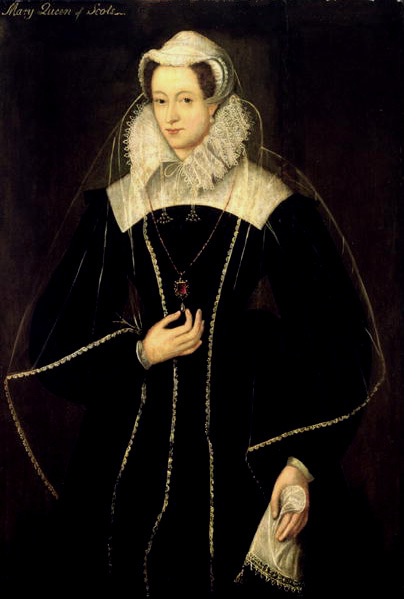Some of Scotland’s most infamous criminals have fallen foul of the law and ended up in the dock in ten of the country’s most remarkable and high-profile trials.
Here, we highlight 10 of them.
1. William Burke (1828)
Most people are familiar with the story of Burke and Hare, who murdered 16 people in order to sell the cadavers as subjects for dissection. However, only William Burke, along with Helen McDougal, stood trial for these crimes, on 24 December 1828. This is because William Hare and his wife, Margaret, turned King’s Evidence and became witnesses for the prosecution in return for immunity. With the Hares as witnesses, Burke’s fate was sealed, although McDougal was acquitted. Enormous crowds turned up to witness Burke’s execution on 29 January 1829
2. Peter Manuel (1958)
Born to Scottish parents in America, Manuel returned to Scotland where he was imprisoned a number of times for sexual assault and rape. Branded ‘The Beast of Birkenshaw’ before his identity was known, between 1956 and 1958 Manuel embarked on a killing spree, murdering at least seven and most probably 18 people by shooting, or raping and strangling them. At his trial Manuel sacked his lawyers and conducted his own defence, ‘with a skill that is quite remarkable’, admitted the judge, Lord Cameron. Manuel was found guilty and on 11 July 1958 became the penultimate man to be hanged in HMP Barlinnie.
3. Jessie McTavish (1974)
In 1973, there were five unexplained deaths on Ward 5 at Ruchill Hospital, Glasgow. When empty insulin containers and used syringes were found in a bin, the police were called. Sister Jessie McTavish was charged with assault and placed in custody for 87 days before being released because in Scotland a trial must take place within 110 days. Later charged with murder, she became the fi rst person ever to remain at liberty awaiting trial on a charge of murder. McTavish was found guilty but her sentence was later quashed due to a mistake made by the judge.
4. Mary Queen of Scots (1586)

Accused of being involved in the Babington plot to assassinate Elizabeth I, Mary, Queen of Scots was tried on 14 October 1586 at Fotheringhay Castle in Northamptonshire. From the outset Mary had protested against the legitimacy of the court, since she was not allowed any legal defence, could not call any witnesses and was not permitted to look at any of the documentary evidence against her. Mary was found guilty and was executed on 8 February 1587 at Fotheringhay Castle.
5. Carole Compton (1982)
In 1982, twenty-year-old Ayrshire girl Carole Compton was working as a nanny in northern Italy when three fi res broke out at the house of her employer. When the home of Compton’s second employer also had mysterious fi res – one in the cot mattress of a sleeping baby, she was arrested. The Italian press denounced Compton as a witch who had demonic powers. In response, the British press rallied in the support of Compton, who was in custody for a full 16 months before her trial, which was at times farcical, with witnesses coming forward with messages from the Devil and the prosecution hinting that one of the fires was started paranormally. In the end Compton was found guilty of two charges of wilful fire-raising and was given a suspended sentence.
6. Gordon Hay (1968)
Eighteen-year-old approved schoolboy Gordon Hay made Scottish legal history in March 1968 when he was convicted of murder through the successful use of forensic odontology. A bite mark on the breast of his victim – 15-year-old Biggar schoolgirl Linda Peacock – was successfully attributed to Hay by three eminent forensic experts. This was the only proof of the murderer’s identity, and in spite of some rigorous cross-examination and the contradictory testimony of another expert, their evidence held up and Hay was convicted. The result was hailed as ‘a forensic triumph’.
7. Luke Mitchell (2004)
The murder of 14-year-old Jodi Jones and the subsequent arrest and trial of her boyfriend, Luke Mitchell, caused a media frenzy. The incident re-ignited the debate about the links between ‘Goth’ music (Mitchell was apparently a fan of Marilyn Manson), drug use (cannabis in this case) and computer games to violent behaviour. Mitchell’s trial at the High Court in Edinburgh made Scottish legal history as the longest of a single accused (42 days) and the most expensive, costing £452,687.
8. Operation Mullet (1979)

Acting on a tip-off, the Lothian and Borders police raided a remote cottage in West Linton and uncovered an ‘Aladdin’s Cave’ of chemicals with the potential to produce £100 million worth of amphetamines. Police also discovered what they believed was a computer print-out containing a formula for synthetic cocaine – if the Dutch syndicate had been successful, Europe would have been flooded with drugs. There nearly was no trial at all because of prejudicial publicity by the Glasgow Herald and Radio Forth, who were both fined for contempt of court. The equipment seized in the operation was used by the police to establish their own toxicology service, having previously relied on the laboratories of the University of Edinburgh.
9. Madeleine Smith
The trial of Madeleine Smith, accused of poisoning her French lover, was something of a cause celebre. Smith was the daughter of a well-respected Glasgow architect, and whilst this was enough to send people into frenzy, it was the revelations during the trial about Smith’s sexual antics that truly shocked and titillated Victorian Scotland. Part of the evidence during the nine-day trial, which took place in Edinburgh on 30 June, was a series of letters written by Smith to Emile L’Angelier, in which she described their various sexual encounters in detail. The case against her was found not proven.
10. Lockerbie (2000)
On 21 December 1988 Pan Am Flight 103 was flying over Lockerbie when it was destroyed by a bomb, killing all 243 passengers, 16 crew members and 11 people from Lockerbie. There followed the UK’s largest criminal inquiry led by the UK’s smallest police force, the Dumfries and Galloway Constabulary. After the three-year joint investigation with the FBI, indictments for murder were issued against Libyans Abdelbaset al-Megrahi and Lamin Khalifah Fhimah. The 36-week trial took place on 3 May 2000 at US Air Force base Camp Zeist in the Netherlands under a specially convened Scottish Court. Fhimah was acquitted but al-Megrahi was found guilty and sentenced to life imprisonment.
TAGS

